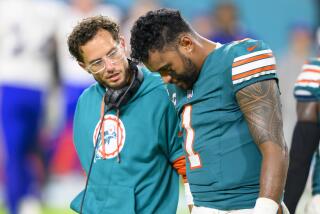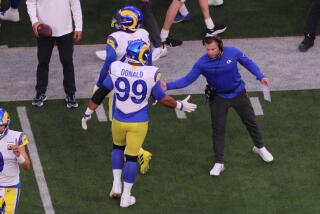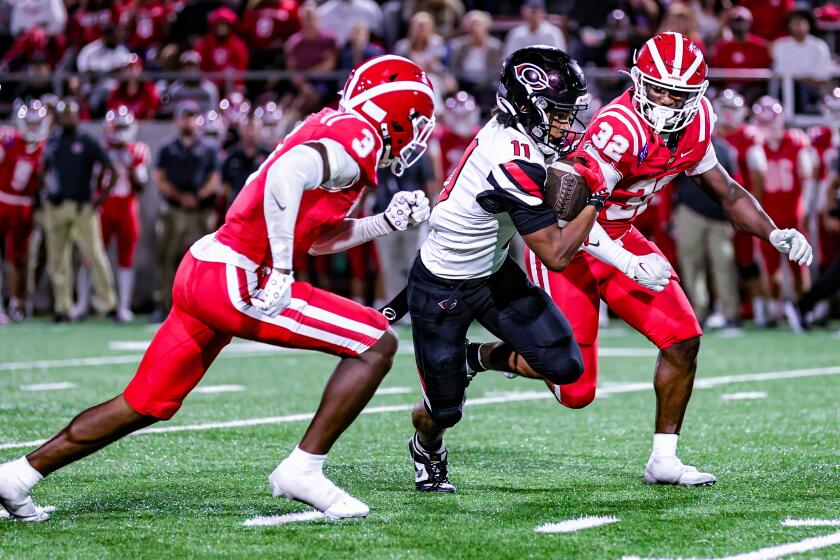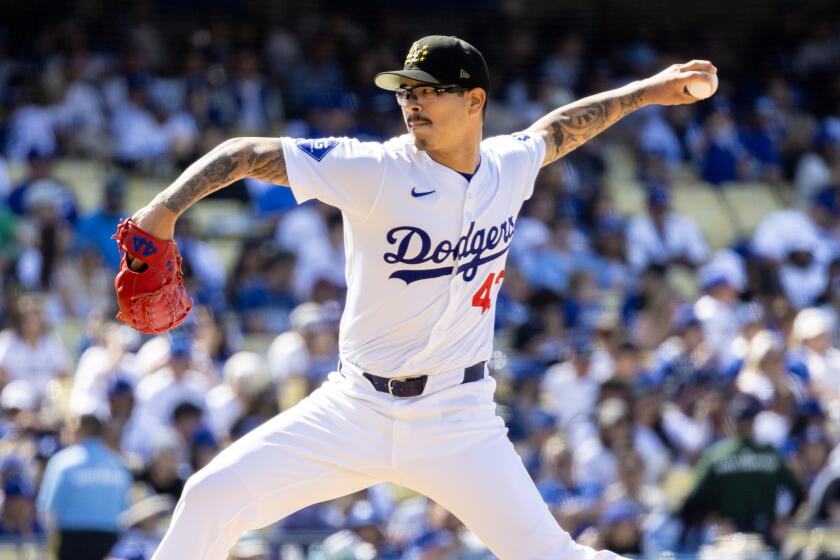Even if it’s time for Peyton Manning to say goodbye, will he?
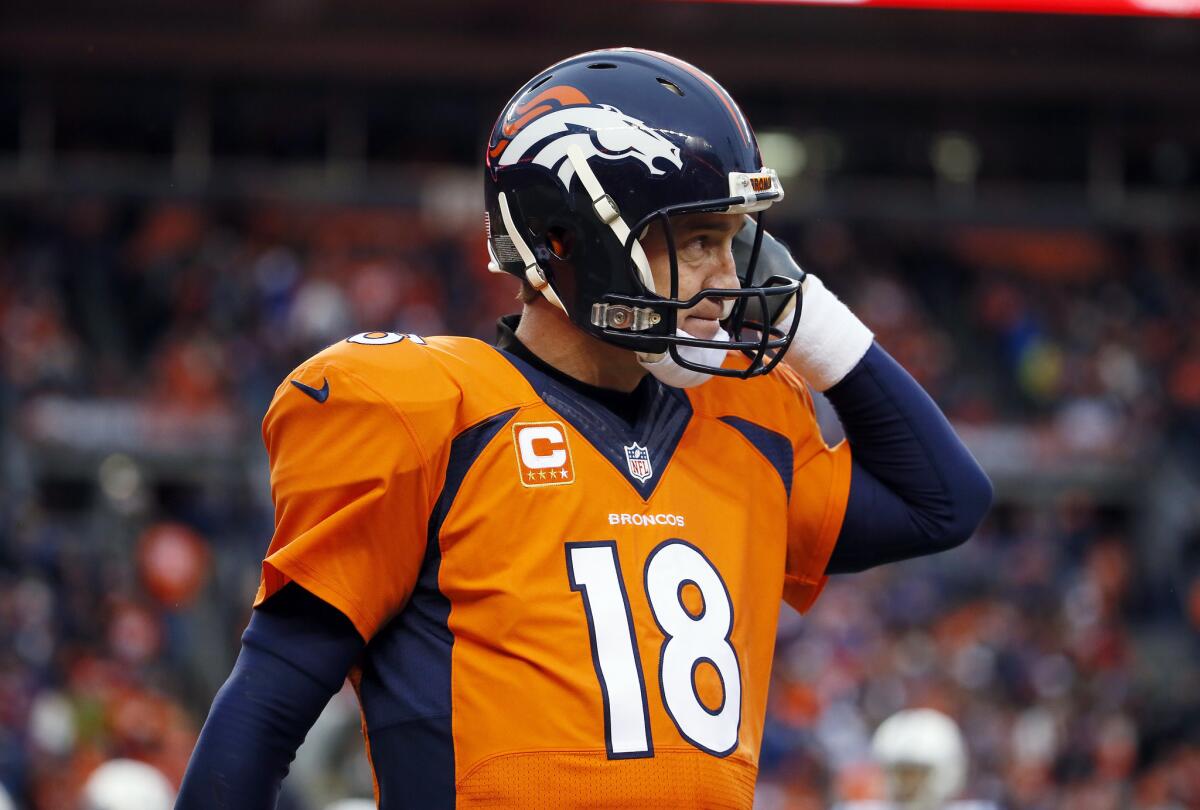
If age is merely a state of mind, or nothing but a number, why was it so painful watching Peyton Manning fail Sunday to get his agile mind to overcome his aging body?
In two days, an entire Denver Broncos franchise has unraveled. Coach John Fox is gone and Manning, certainly among the greatest quarterbacks of all-time, is pondering walking away from the last two years of his contract and about $25 million.
Ponder he should. Because, in athletic years, he is old.
Left to deal with this, interestingly, is General Manager John Elway, who didn’t win his two Super Bowls with the Broncos until he was well past the age when he should have. He was 37 and 38.
Age is a fascination in sports. For those of us who watch and write about the games and the people who play them, it is an ongoing subject. Acres of trees in Oregon will be torn down for the speculation about what Manning should do. Twice that much Internet real estate will be devoted to the same subject.
Should he or shouldn’t he? The first half of the season, he looked to be about 27. The second half, after he injured his leg, he looked like the 38 that he is.
Will he settle for the obvious joy and satisfaction of postcareer that Teemu Selanne must have felt when he had his jersey retired the other night by the Ducks in a special ceremony? Selanne is 43. He retired last year after 21 seasons in the NHL, 15 with the Ducks.
His legacy is respect, admiration.
Manning’s will certainly be the same, no matter when he walks away. But will he walk away with the frustrated memories of the likes of baseball Hall of Fame members Warren Spahn or Willie Mays, who may have taken trips to the pitching mound or the batter’s box for a couple of years too many?
Spahn retired when he was 44. He played 23 years. Mays quit when he was 42. He played 22 years.
Near the end, Mays told a reporter, “Getting old is just a helpless hurt.”
Manning might want to print that out and paste it above his locker.
If he stays, might he have an Elway Super Bowl in him? Or even a moment similar to Tom Watson’s walk down the 18th fairway at Turnberry on the last day of the 2009 British Open, just before he hit his second shot over the green and Stewart Cink won? Watson was 59, an unimaginable age to win a major golf tournament.
“Even I was rooting for him,” Cink said then.
If Manning stays, in a game much more brutal than baseball or golf, might he take a hit that alters his life and colors his legacy?
There is no easy answer, no mandated cutoff.
Roger Federer just reached 1,000 tennis victories. He is 33. Only two others in men’s tennis have crossed that barrier, Jimmy Connors with 1,253 and Ivan Lendl with 1,071. Connors was 39 when he made a run all the way to the U.S. Open semifinals in 1991 and a nation of sports fans was thrilled. But like Watson’s dazzler, he didn’t win.
Federer is not pondering retirement. He is pondering winning the Australian Open in the next few weeks.
Federer’s onetime hero, Pete Sampras, went out on a high with the U.S. Open title in 2002. His game had been slipping. He knew that and also knew he couldn’t tolerate just playing for money or just hanging around. He was 31. His last match was that Open title.
The player he beat in that U.S. Open final, Andre Agassi, didn’t stop until he was 36, and until he lost to Ben Becker in the third round of the 2006 U.S. Open. At that point, he was in so much pain from a bad back that he didn’t know which was worse, sitting up or lying down.
In that 2006 Open, Martina Navratilova won the mixed doubles title with Bob Bryan. A month later, she turned 50.
Knowing Manning and his work ethic and preparation, he will be pondering all this, all these people, all the things that went into their decisions. Tennis isn’t the NFL, but aging muscles are aging muscles.
Tiger Woods is 39 and about to start yet another season of pursuing Jack Nicklaus’ record of 18 majors victories. If he gets through this year without a major victory, it will be his seventh in a row and that, despite his amazing success, is legacy-tainting.
Manny Pacquiao and Floyd Mayweather are, allegedly, close to finalizing a match. Mayweather will be 38 in February. Pacquiao is 36. Have they waited too long to make this a real moment in sports history? Probably. Can they still box better than 99.9% of the fighters in the world? You bet.
Tom Brady is 37 and there seems to be another Super Bowl well within his grasp.
Kobe Bryant is 36 and is either too old to contribute to keeping the Lakers a power, too disgusted with what he has around him to waste his time, or too coy to let us all in on his master plan for the remainder of his contract.
We have a phrase in the sportswriting business that says athletes seldom learn to say hello until they realize it is time to say goodbye.
The saying hello part was never a problem for Manning, who is one of the most engaging, deep-thinking and articulate athletes in any sport.
For him, the saying goodbye part may be the toughest thing he has faced. And with him, money will matter the least.
Should he say goodbye? Probably. Will he? Probably not.
More to Read
Go beyond the scoreboard
Get the latest on L.A.'s teams in the daily Sports Report newsletter.
You may occasionally receive promotional content from the Los Angeles Times.
